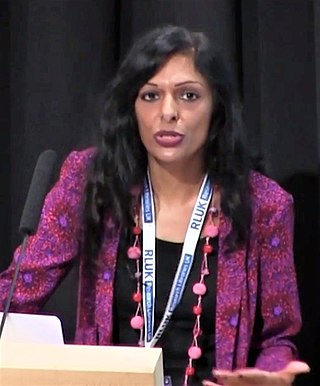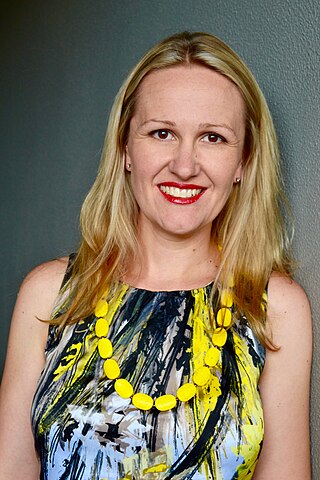
The National Oceanography Centre Southampton (NOCS) is a centre for research, teaching, and technology development in Ocean and Earth science. NOCS was created in 1995 jointly between the University of Southampton and the UK Natural Environment Research Council and is located within the port of Southampton at a purpose-built dockside campus with modern facilities. In 2010 the university and NERC components demerged, and the NERC-managed component became the National Oceanography Centre. The two components of NOCS continue close collaboration through the jointly run Graduate School, shared research facilities and laboratories, complementary research groups, and many joint research grants and publications. The university component “Ocean and Earth Science, National Oceanography Centre Southampton” (OES) is part of the Faculty of Environmental and Life Sciences, (FELS). It was ranked 46th in the world for Earth and Marine Sciences by the QS World University Rankings in 2019.
Advance HE is a British charity and professional membership scheme promoting excellence in higher education. It advocates evidence-based teaching methods and awards fellowships as professional recognition for university teachers. Founded in 2003, the Higher Education Academy was responsible for the UK Professional Standards Framework for higher education practitioners and merged to form Advance HE on 21 March 2018.
Lancaster University Management School (LUMS) is the business school of Lancaster University in Lancaster, England. The school's history can be traced back to the establishment of departments of marketing and of operational research at the university's foundation in 1964. These and other related departments were organised into the "School of Business and Organizational Studies" in 1969. A full range of subjects are taught, ranging from undergraduate degrees to postgraduate degrees, including executive and full-time MBAs, PhDs and post-experience executive education.
The UKRC is a UK organisation for the provision of advice, services and policy consultation regarding the under-representation of women in science, engineering, technology and the built environment (SET). It is funded by the Department for Business, Innovation and Skills and was launched in 2004.

Many scholars and policymakers have noted that the fields of science, technology, engineering, and mathematics (STEM) have remained predominantly male with historically low participation among women since the origins of these fields in the 18th century during the Age of Enlightenment.
The UCL Institute for Global Health (IGH) is an academic department of the Faculty of Population Health Sciences of University College London (UCL) and is located in London, United Kingdom. It was founded in 1964 by David Morley as the Tropical Child Health Unit. Originally a unit within the UCL Institute of Child Health, IGH became independent in August 2013 with Professor Anthony Costello as director.
Dame Nicola Whitmont Dandridge was the Chief Executive of the Office for Students between July 2017 and April 2022.
Gender representation on corporate boards of directors refers to the proportion of men and women who occupy board member positions. To measure gender diversity on corporate boards, studies often use the percentage of women holding corporate board seats and the percentage of companies with at least one woman on their board. Globally, men occupy more board seats than women. As of 2018, women held 20.8% of the board seats on Russell 1000 companies. Most percentages for gender representation on corporate boards refer only to public company boards. Private companies are not required to disclose information on their board of directors, so the data is less available.
Dorothy Seymour "Dot" Griffiths, is a British academic and sociologist. She championed gender equality at Imperial College London, where she was a lecturer in sociology from 1969. She was Professor of Human Resource Management from 2002 to 2017.

Valerie Gibson, also known as Val Gibson, is a professor of Physics and Head of the High Energy Physics group at the University of Cambridge.

Jocalyn Clark is a Canadian Public Health Scientist and the International Editor of The BMJ, with responsibility for strategy and internationalising the journal's content, contributors and coverage. From 2016 to 2022, Jocalyn was an Executive Editor at The Lancet, where she led the Commentary section, coordinated peer review, and edited and delivered collections of articles and Commissions on topics such as maternal and child health, oral health, migration, end of life care and gender equity. She led the Lancet's project to advance women in science, medicine, and global health, #LancetWomen. She is also an Adjunct Professor of Medicine at the University of Toronto and an Honorary Associate Professor at the Institute for Global Health at UCL.
Karen Rafferty is the Head of the School of Electronics, Electrical Engineering and Computer Science at Queen's University Belfast. She works with virtual and augmented reality for health care and automation.

Nicola Rollock is a British academic, writer and activist. She is professor of social policy and race at King's College London, having previously been reader in equality and education at Goldsmiths College, University of London, and has written several books, including The Colour of Class: The educational strategies of the Black middle classes (2014). She has been included in the Powerlist of the most influential black Britons and has received the PRECIOUS award for her work in racial equality.

Kalwant Bhopal is Professor of Education and Social Justice and Director of the Centre for Research in Race & Education at the University of Birmingham. Her work explores the achievements and experiences of minority ethnic groups in education with a focus on how processes of racism, exclusion and marginalisation operate in predominantly White spaces.
Izzy Jayasinghe is the Head of the Department of Molecular Medicine in the School of Biomedical Sciences at the University of New South Wales, and a Visiting Fellow at the University of Sheffield, where she was previously a UKRI Future Leader Fellow. Her research focuses on super resolution microscopy, biophysics, cardiac muscle and microscopy instrument development. In addition to her scientific research and teaching, she is a strong advocate for gender equality and diversity in academia.

Jessica Geraldine Borger is an Australian T Cell immunologist, lecturer and graduate course coordinator at the Central Clinical School, Monash University. Her research has added to the understanding of the molecular mechanisms of T cell function. Additionally, Borger is a news and commentary editor for Immunology & Cell Biology and a guest associate editor for Frontiers in Immunology, and a reviewer for several academic journals. Jessica also advocates for gender equality in science, technology, engineering and mathematics (STEM) in her position a member of the Gender Equity, Diversity and Inclusion committee of the Central Clinical School at Monash University.
Gender parity is a statistical measure used to describe ratios between men and women, or boys and girls, in a given population. Gender parity may refer to the proportionate representation of men and women in a given group, also referred to as sex ratio, or it may mean the ratio between any quantifiable indicator among men against the same indicator among women.
Anna Louise Cox is a British Professor of Human Computer Interaction in the University College London Faculty of Brain Sciences. Her research considers evidence-based approaches to reduce work-related stress and remain focussed through the use of digital technology. Cox serves as Vice Dean for Equality, Diversity & Inclusion and was an advisor to the House of Commons Digital, Culture, Media and Sport Committee for their select committee enquiry on immersive and addictive technologies.
Adelina Broadbridge is an academic specialising in research on charity retailing, retailing, and gender in management. She led the Stirling Management School in winning the Athena SWAN award.

Parveen Yaqoob is a professor of Nutritional Physiology at the University of Reading. She is currently the Pro-Vice-Chancellor for Research & Innovation and is serving as Deputy Vice-Chancellor. She has made significant contributions to the science of diet, health, ageing and immune function/inflammation, as well as to higher education in the UK. She also acts as non-executive director for the Royal Berkshire NHS Foundation Trust.







